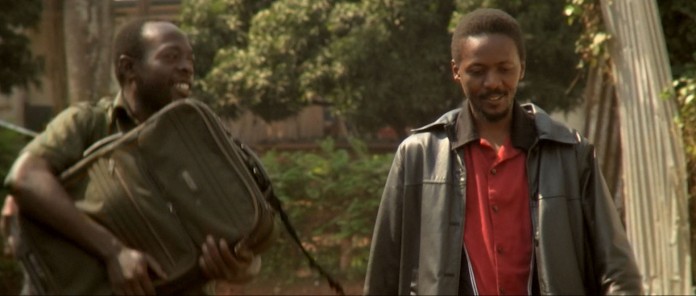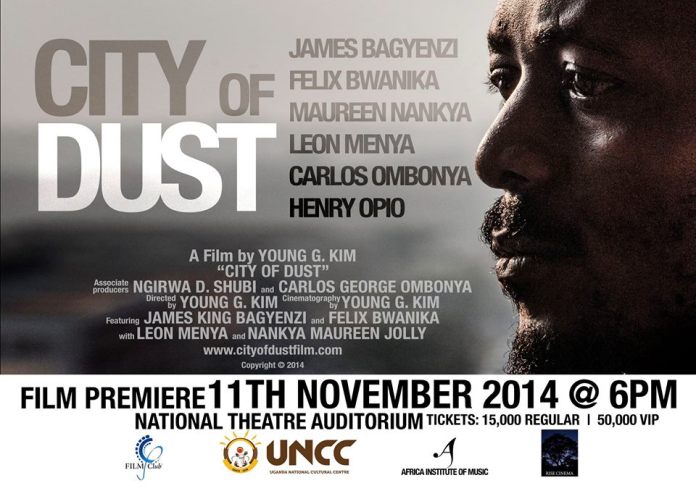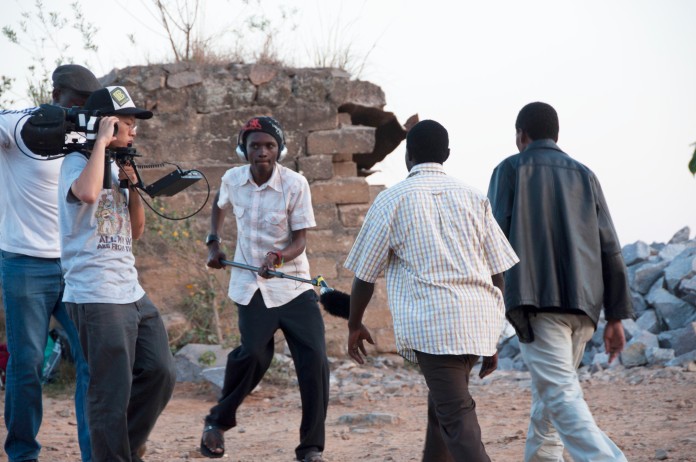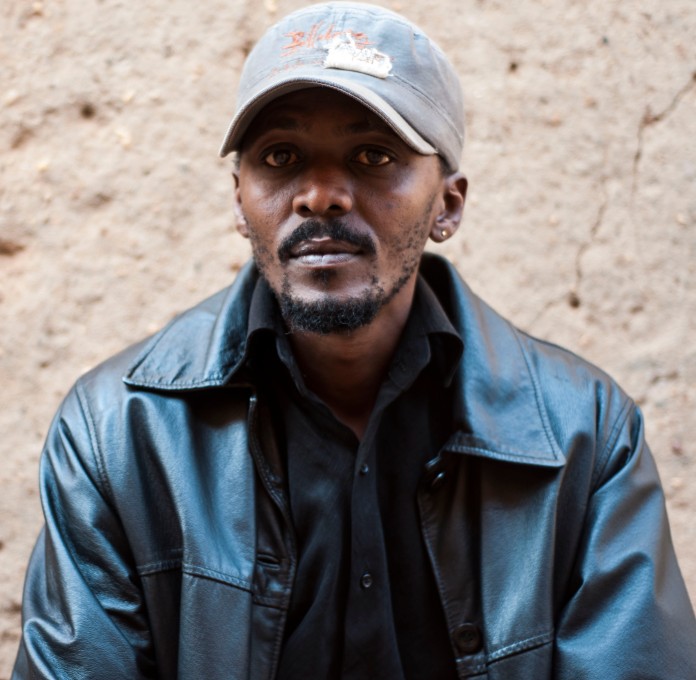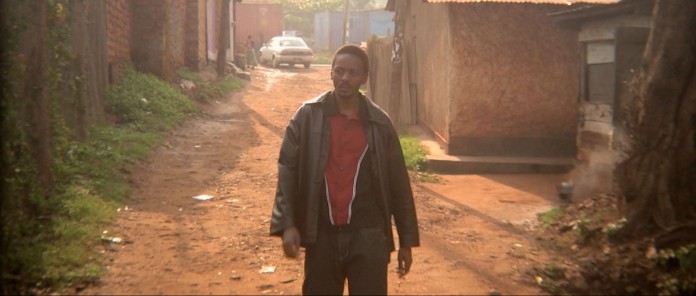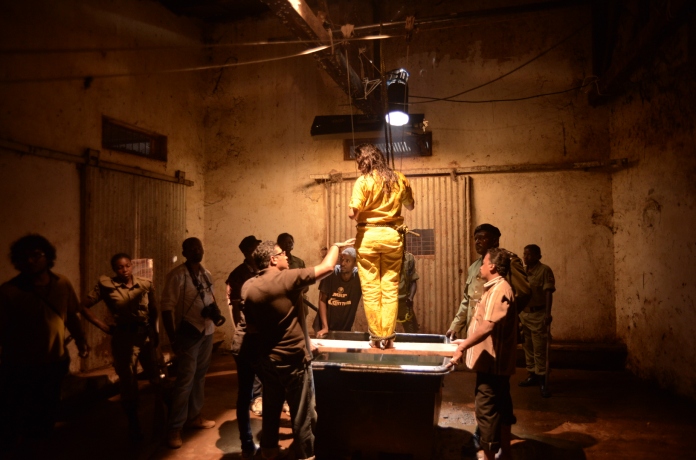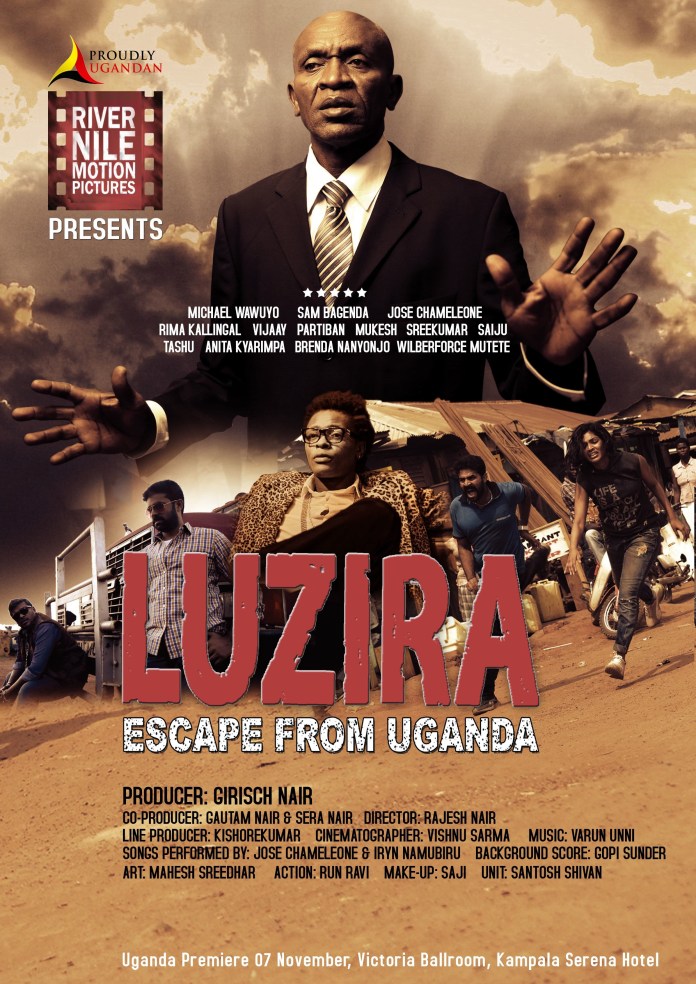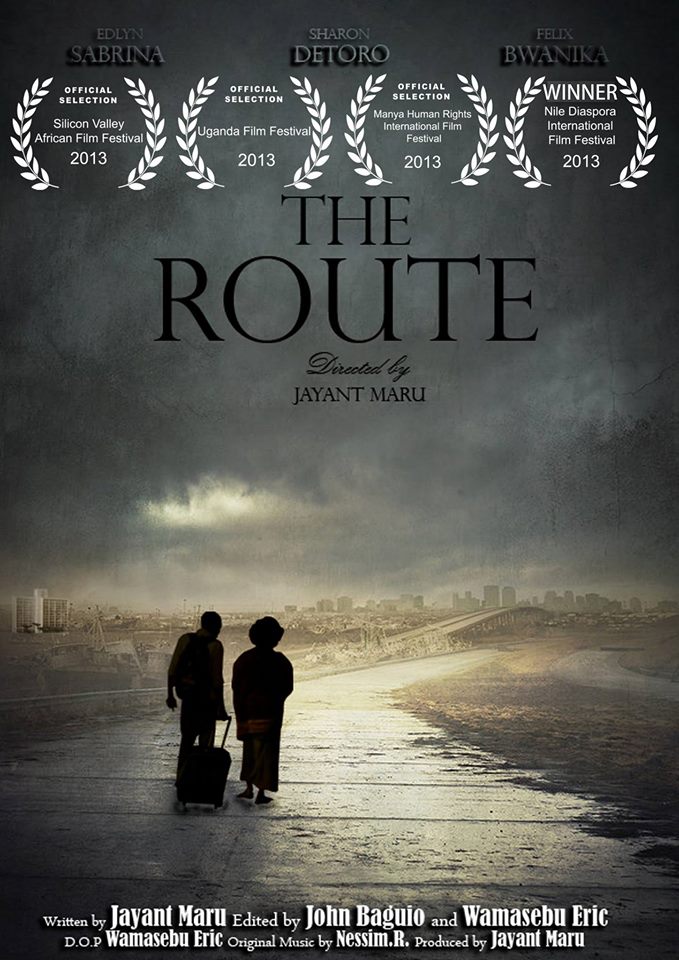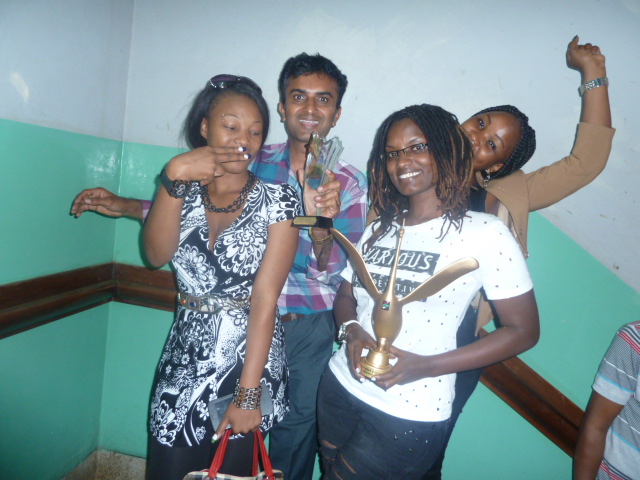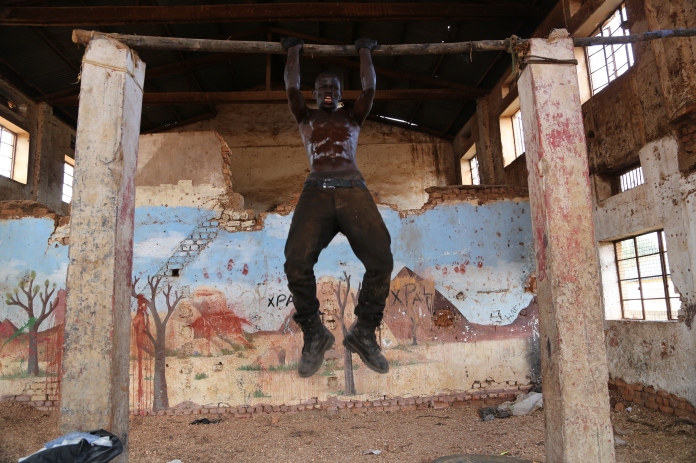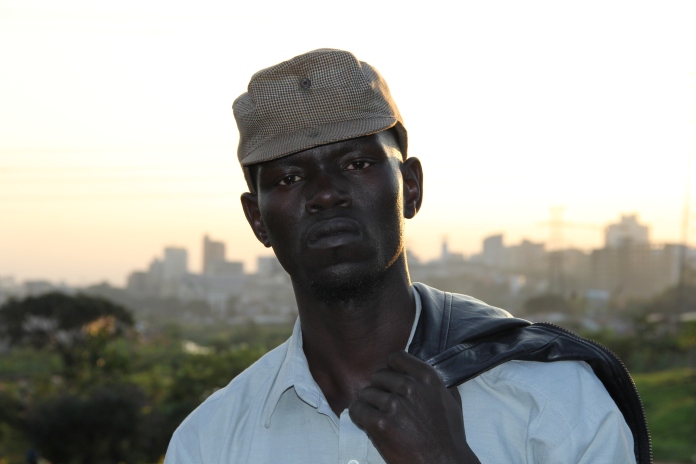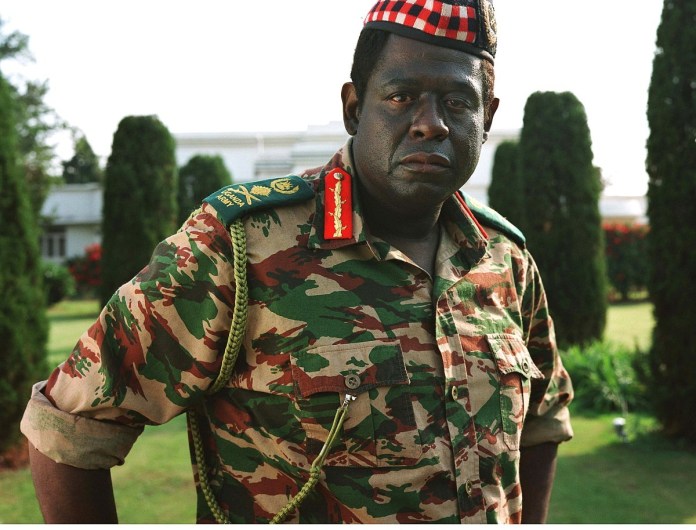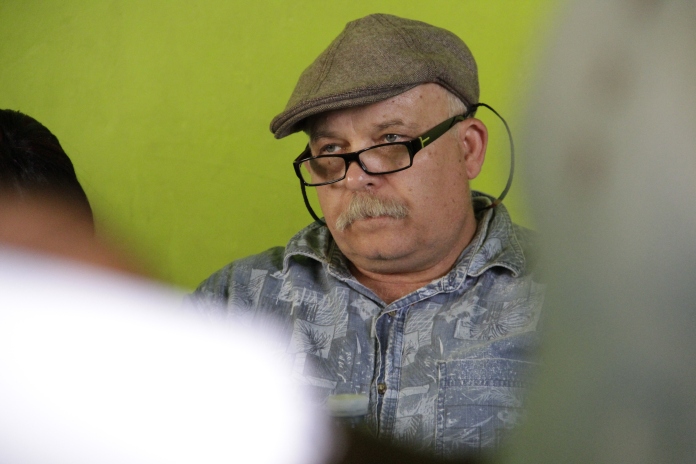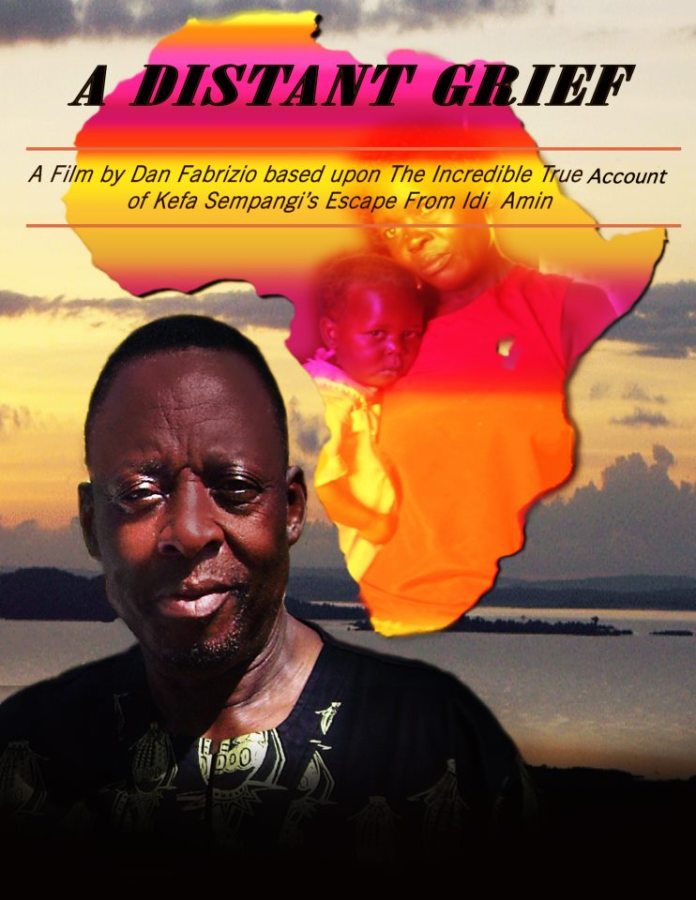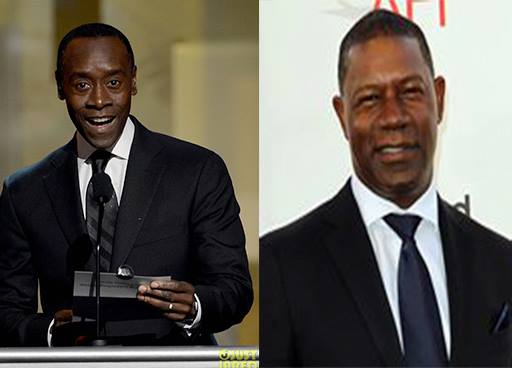POLLY KAMUKAMA
Embattled Ugandan actor Joel Okuyo Pryce has finally come out to deny allegations that he is a human trafficker, and instead blames a love rival for his predicament.
The acclaimed actor has for two year now been a subject of police investigations and scandalous media reports accruing from his alleged connections to a notorious human trafficking racket.
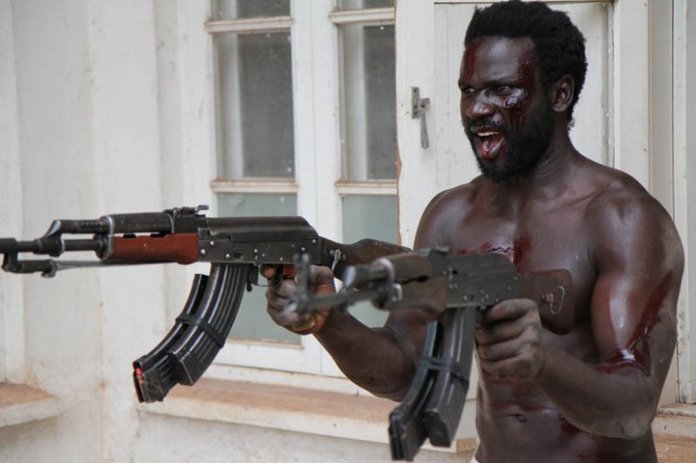
Prynce, seen here in a scene from ‘SRB’, has now turned guns on a love rival identified as Stephen Lucas Seryazi.
Now, the multi-award winning entertainer and billboard model has told this blog that the allegations are a part of an elaborate smear campaign instigated against him by an ex-boyfriend of his girlfriend.
Speaking exclusively to us last week, Prynce identified the man in question as Stephen Lucas Seryazi, a pilot attached to the UN.
“He is using his influence and wealth to tarnish my name because he is so jealous that the girl left him for me. He has been bribing police and some journalists to torment me,” he said, seemingly troubled.
The 31-year-old actor and his girlfriend, one Dolly Phionah, met in the fall of 2011 and quickly fell in love. The couple now lives together in Seeta-Mukono and has an infant daughter.

The acclaimed actor has endorsed a number of big companies including Tanzania’s Safari Lager, thanks to his fame, talent and athletic build.
But the 2009 AMAA award-winning actor says he only got to learn of Phionah’s previous romance with Seryazi sometime last year having initially fed on her lie that the airline captain was her father.
“The first time I met him in 2012 he was very rude to me but I passed it off as a normal reaction from an over-protective father,” Prynce recounted the moment he now regrets.
“I should have read between the lines back then because I now know that he was up to no good. He is so jealous and it is clear he won’t stop at nothing to see me get hurt,” he adds.
The dreadlocked actor, whose undeniable talent and athletic build has earned him huge endorsement deals with a number of multinationals, says Seryazi is behind all the misery he has had to endure.

The burly actor (R) made a rare public appearance at last year’s Uganda Film Festival (UFF) finale where ‘SRB’, a film he headlined, emerged the biggest winner. He has largely become reclusive ever since the human trafficking allegations started making rounds in 2012.
His ordeal started on the morning of December 18, 2012 – right at the peak of his career – as he went shopping at Garden City mall in Kampala.
He was brutally arrested by a group of plain-clothed security officials from the Special Investigations Unit (SIU) on charges of trafficking in humans.
The SIU, a security agency that deals with the most hardened criminals such as terrorists, was acting on a tip off from The Red Pepper tabloid, which a few days earlier had published a sensational story claiming that the S.R.B actor was the kingpin of a syndicate responsible for selling thousands of innocent Ugandan girls to work as sex slaves in Asia.
The article quoted an anonymous source claiming that Prynce lured her and other girls to their fate with a promise of a job as marketers in Malaysia.
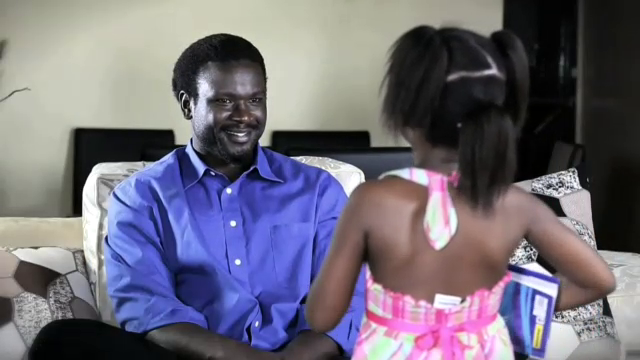
Prynce, seen here in a screenshot of an advert done for Warid Telecom in Congo, has an infant daughter with his girlfriend.
While working as a sex slave, the source claimed, she saw girls being raped, tortured and mutilated, and their delicate body organs sold for a killing on the black market.
Prynce however now believes the case, which up to now still lingers at SIU and has effectively rendered him unusable since no company wants to associate with a human trafficking suspect, was fueled by Seryazi.
“I have never been a human trafficker, and I have no idea how that business operates. I am an upright man and law abiding citizen of this country,” says the actor who dreams of winning an Oscar some day.
And his claim seems to hold merit given that no victim has ever come out to pinpoint him regardless of the media attention his case has received.
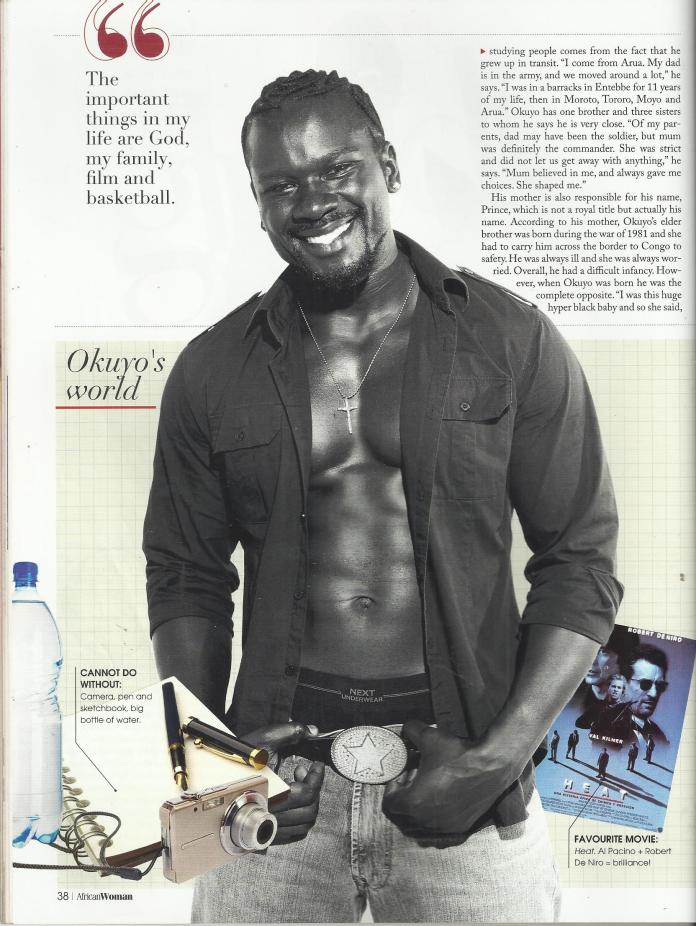
The hunky star was the first man to be profiled by the now defunct African Woman magazine.
He has also on a number of occasions been part of criminal identification parades at SIU, but no victim stepped forward.
But the burly actor, whose father is a high-ranking army officer in the UPDF, has been accused of using his own connections in the military to silence his purported victims.
Records show that he sought a temporary clearance from Interpol on the issue of human trafficking. But this hasn’t stopped other problems from finding their way to ‘the prince’ as he is often called.
In March last year for example, he was denied a visa to travel to USA as the lead actor in the controversial play, The River and the Mountain, which had been outlawed in Uganda a year before on grounds of promoting homosexuality.
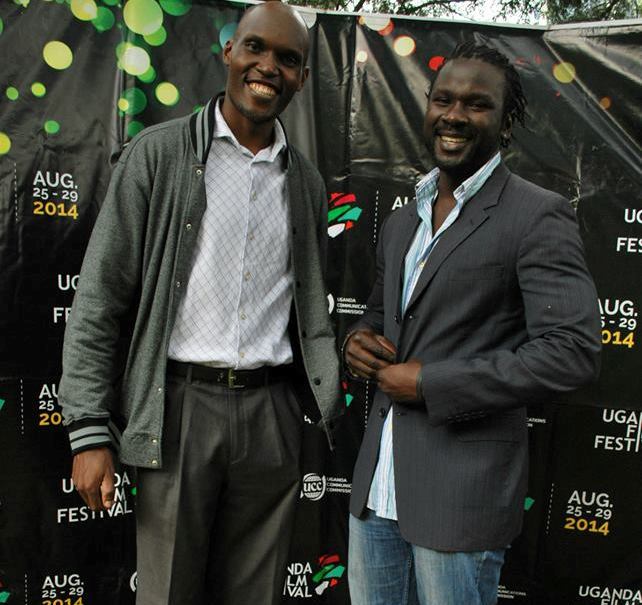
Prynce and his regular collaborator, director Matt Bish, seen here in a picture taken at the UFF 2014 finale in August where he is accused of assaulting a Red Pepper journalist.
Prynce plays the character of a gay factory owner, Samson, who is brutally killed by his own workers in a homophobic attack after attempts to get him ‘cured’ hit a snag.
Once his initial visa application was turned down on March 15, high-ranking American politicians strenuously lobbied the US embassy in Kampala to review their decision but to no avail.
Three months later, Seryazi – whom Prynce says is old enough to be his dad – opened up a burglary and theft case against the actor and his girlfriend.
Case No. CRB 1781/2013 at Mukono Police Station states that the UN pilot suspected the couple to have broken into his house and made off with furniture, kitchen appliances and entertainment equipment.

Prynce in action as the tragic gay factory owner in the outlawed play, The River and the Mountain. He was in March last year denied a visa to travel to the US as part of the play’s cast.
A successful raid was subsequently carried out on the couple’s house although Prynce still insists that neither he nor Phionah stole anything.
“Some of that property actually belonged to me. The rest had been given to Phionah as gifts while she was still with Seryazi,” explained the man who has acted in over 30 films and plays across the world in a career spanning since his primary school days.
The Imbabazi star and former face of Nile Breweries is also currently battling an assault and malicious damage case involving a Red Pepper journalist.
Meanwhile, the tabloid has been relentless in dishing out dirt on the actor through a series of sensationalized articles that paint him as a violent criminal on the run.
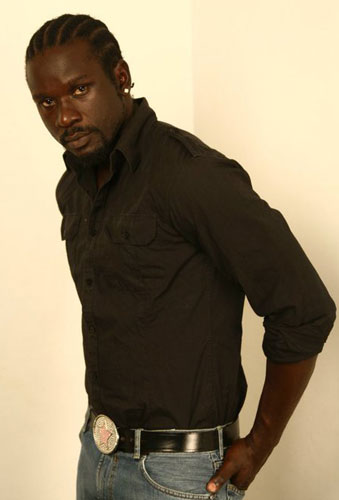
Prynce’s humble prayer now is that his love rival, one Lucas Seryazi, can get over his girlfriend so he can stop tormenting him.
But the actor, who admits he had a violent temper growing up but has since tamed himself with the help of martial arts and gyming, is instead more worried about the toll his alleged connection with the criminal underworld is taking on his life and career.
So far, angry mobs have attacked his house twice, and he continues to be a target of hateful comments on social media. He has also been dropped by nearly all his employers out of fear working with him would tarnish their images.
A former teaching assistant at UCU, the actor has had his relationship with the Christian University – along with such other companies as MTN, Airtel and Stanbic Bank – reviewed since the human trafficking allegations first came out in 2012.
MultiChoice, the giant cable TV that runs M-Net, has also technically struck the celebrated actor off the cast of their Kona series where he was paid a cool Shs1.5m per episode of the hit boxing drama.
The move is believed to have stemmed from a bitter email sent to the company on September 8 last year by a one Axel Nakku, a purported employee of UNICEF, warning that is was very insensitive for MultiChoice to keep employing Prynce.
“Your organization displayed total lack of social responsibility by parading Prynce as an M-net celeb when he has been involved in sex trade and human body parts trafficking,” reads in part the email that came in the aftermath of Kona premiere in Kampala and was copied to Seryazi’s work email.
“We urge M-Net to exercise mature social responsibility by not allowing people who do harm to society to self-praise their unsocial achievements by being flashed at M-Net events,” continued the rant.
Nile Breweries has also cut off ties with the Battle of the Souls actor who in 2012 was paid $6000 (about Shs15m) to grace the beer company’s commercial that aired in Uganda, Tanzania and Ghana.
In the catchy ad, Prynce assumes the role of a hardworking mechanic who winds down his days by drinking his favorite beer.
But the loss of millions of money in canceled deals has now left him struggling to put food on the table.
“My humble prayer now is that the file at SIU be closed and my name cleared. I also want police to get to the bottom of this human trafficking trade so that the real culprits are caught and punished,” Prynce says.
Asked why it took him so long to come out and defend his name, the outspoken actor said that he had hoped that police would resolve the matter quickly.
Now he finds himself having to use drastic approaches including possible lawsuits against Seryazi, Red Pepper and even Uganda Police.
He has also written a ten-page letter to Kale Kaihura, the Inspector General of Police (IGP), detailing his frustration at the sloppiness with which his case is being handled at SIU.
But as it now appears, how fast he will get his justice depends on Seryazi’s ability to get over Phionah.
kamukamapolly@gmail.com



